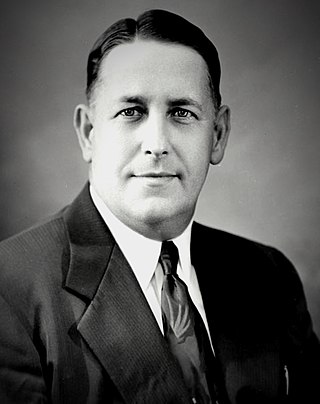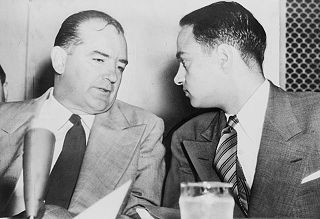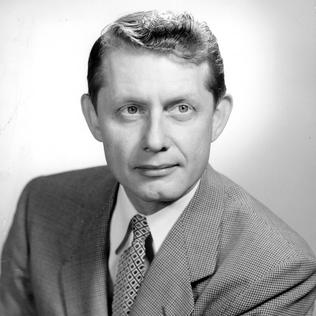Queer studies, sexual diversity studies, or LGBT studies is the study of topics relating to sexual orientation and gender identity usually focusing on lesbian, gay, bisexual, transgender, gender dysphoric, asexual, queer, questioning, and intersex people and cultures.
Anti-LGBT rhetoric comprises themes, catchphrases, and slogans that have been used in order to demean lesbian, gay, bisexual, and transgender (LGBT) people. They range from the demeaning and the pejorative to expressions of hostility towards homosexuality which are based on religious, medical, or moral grounds. It is a form of hate speech, which is illegal in countries such as the Netherlands, Norway, and Sweden.
LGBT slang, LGBT speak, queer slang, or gay slang is a set of English slang lexicon used predominantly among LGBTQ+ people. It has been used in various languages since the early 20th century as a means by which members of the LGBTQ+ community identify themselves and speak in code with brevity and speed to others. The acronym LGBT was popularized in the 1990s and stands for Lesbian, Gay, Bisexual, and Transgender. It may refer to anyone who is non-heterosexual or non-cisgender, instead of exclusively to people who are lesbian, gay, bisexual, or transgender. To recognize this inclusion, a popular variant, LGBTQ, adds the letter Q for those who identify as queer or are questioning their sexual or gender identity.

Charley Eugene Johns was an American politician. Johns served as the 32nd Governor of Florida from 1953 to 1955.

James Catherwood Hormel was an American philanthropist, LGBT activist, diplomat, and heir to the Hormel meatpacking fortune. He served as the United States Ambassador to Luxembourg from 1999 to 2001, and was the first openly gay man to represent the United States as an ambassador.
"Gay agenda" or "homosexual agenda" is a term used by sectors of the Christian religious right as a disparaging way to describe the advocacy of cultural acceptance and normalization of non-heterosexual sexual orientations and relationships. The term originated among social conservatives in the United States and has been adopted in nations with active anti-LGBT movements such as Hungary and Uganda.

The Lavender Scare was a moral panic about homosexual people in the United States government which led to their mass dismissal from government service during the mid-20th century. It contributed to and paralleled the anti-communist campaign which is known as McCarthyism and the Second Red Scare. Gay men and lesbians were said to be national security risks and communist sympathizers, which led to the call to remove them from state employment. It was thought that gay people were more susceptible to being manipulated, which could pose a threat to the country. Lesbians were at less risk of persecution than gay men, but some lesbians were interrogated or lost their jobs.

Homophobia encompasses a range of negative attitudes and feelings toward homosexuality or people who identify or are perceived as being lesbian, gay or bisexual. It has been defined as contempt, prejudice, aversion, hatred or antipathy, may be based on irrational fear and may sometimes be related to religious beliefs.
William Armstrong Percy III was an American professor, historian, encyclopedist, and gay activist. He taught from 1968 at the University of Massachusetts Boston, and started publishing in gay studies in 1985.

Gay pulp fiction, or gay pulps, refers to printed works, primarily fiction, that include references to male homosexuality, specifically male gay sex, and that are cheaply produced, typically in paperback books made of wood pulp paper; lesbian pulp fiction is similar work about women. Michael Bronski, the editor of an anthology of gay pulp writing, notes in his introduction, "Gay pulp is not an exact term, and it is used somewhat loosely to refer to a variety of books that had very different origins and markets". People often use the term to refer to the "classic" gay pulps that were produced before about 1970, but it may also be used to refer to the gay erotica or pornography in paperback book or digest magazine form produced since that date.

The Florida Legislative Investigation Committee was established by the Florida Legislature in 1956, during the era of the Second Red Scare and the Lavender Scare. Like the more famous anti-Communist investigative committees of the McCarthy period in the United States Congress, the Florida committee undertook a wide-ranging investigation of allegedly subversive activities by academics, Civil Rights Movement groups, especially the NAACP, and suspected communist organizations.
LGBT movements in the United States comprise an interwoven history of lesbian, gay, bisexual, transgender and allied movements in the United States of America, beginning in the early 20th century and influential in achieving social progress for lesbian, gay, bisexual, transgender and transsexual people.
This is a list of notable events in the history of LGBT rights that took place in the 1970s.

Save Our Children, Inc. was an American political coalition formed in 1977 in Miami, Florida, to overturn a recently legislated county ordinance that banned discrimination in areas of housing, employment, and public accommodation based on sexual orientation. The coalition was publicly headed by celebrity singer Anita Bryant, who claimed the ordinance discriminated against her right to teach her children biblical morality because the ordinance specifically required parochial Christian schools, like the one her children attended, to hire openly homosexual teachers. It was a well-organized campaign that initiated a bitter political fight between gay activists and Christian fundamentalists. When the repeal of the ordinance went to a vote, it attracted the largest response of any special election in Dade County's history, passing by a more than 2-to-1 margin. In response to this vote, a group of gay and lesbian community members formed Pride South Florida, now known as Pride Fort Lauderdale, an organization whose mission was to fight for the rights of the gay and lesbian community in South Florida.
Communist attitudes towards LGBT rights have evolved radically in the 21st century. In the 19th and 20th century, communist parties and Marxist–Leninist states varied on LGBT rights; some Western parties were among the first political parties to support LGBT rights, while others, especially the Soviet Union and its Eastern Bloc, harshly persecuted people of the LGBT community.

Harold Leland "Hal" Call was an American businessperson, LGBT rights activist, and U.S. Army veteran. He served as president of the Mattachine Society and in the 1950s, was one of the first gay activists to speak publicly on television. Call founded printing presses for LGBT publications and later opened gay adult shops and pornographic film screening venues. He received a Purple Heart for his service in the Pacific War.
President Dwight D. Eisenhower issued Executive Order 10450 on April 27, 1953. Effective May 27, 1953, it revoked President Truman's Executive Order 9835 of 1947, and dismantled its Loyalty Review Board program. Instead, it charged the heads of federal agencies and the Civil Service Commission, supported by the Federal Bureau of Investigation (FBI), with the task of investigating federal employees to determine whether they posed security risks. It expanded the definitions and conditions used to make such determinations. The order contributed to the ongoing Lavender scare of the mid-1950s, barring thousands of lesbian and gay applicants from government jobs.
This article concerns LGBT history in Florida.

Anti-LGBT curriculum laws are laws approved by various U.S. states that prohibit or limit the mention or discussion of homosexuality and transgender identity in public schools, especially in younger grades. In theory, these laws mainly apply to sex ed courses, but they can also be applied to other parts of the school curriculum as well as to extracurricular activities such as sports and organizations such as gay–straight alliances. In July 2022, a wave of anti-LGBT curriculum resurgence saw ten such laws beginning to take effect in six different states. Some states enacting these new laws appear to have mirrored similar laws from other states.
The Atlanta Public Library perversion case refers to a series of arrests made in September 1953 at the Atlanta Public Library in Atlanta, Georgia United States. The Atlanta Police Department, at the request of library officials, had set up a stakeout in the library's men's restroom via a one-way mirror and arrested 20 people on charges of sodomy over a period of 8 days. The incident was widely covered in the local newspapers.










